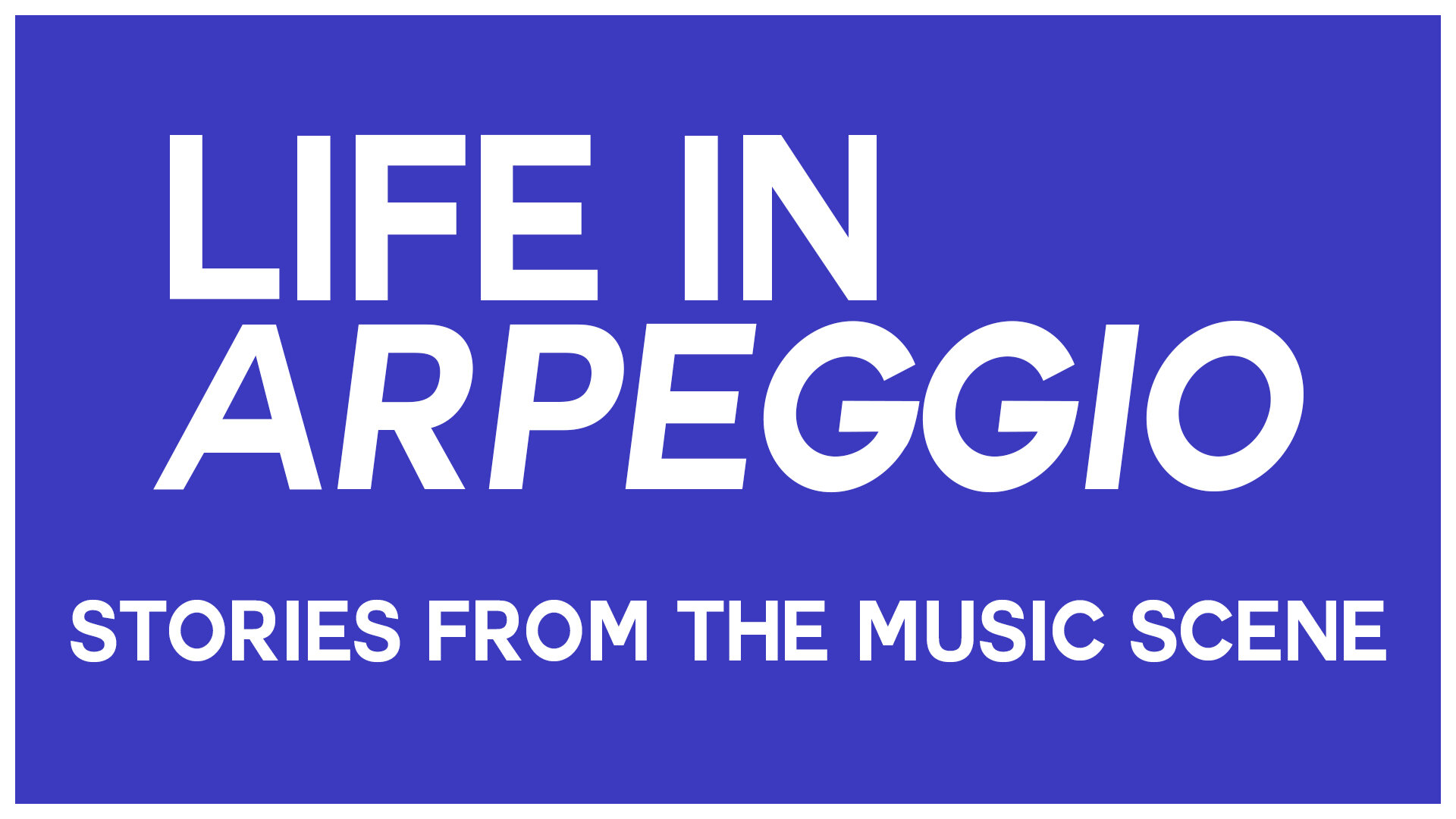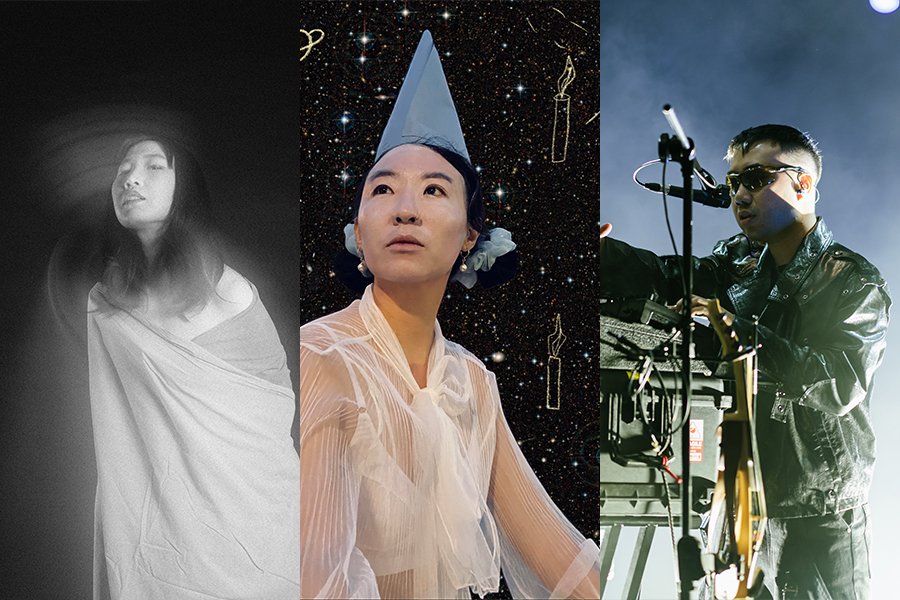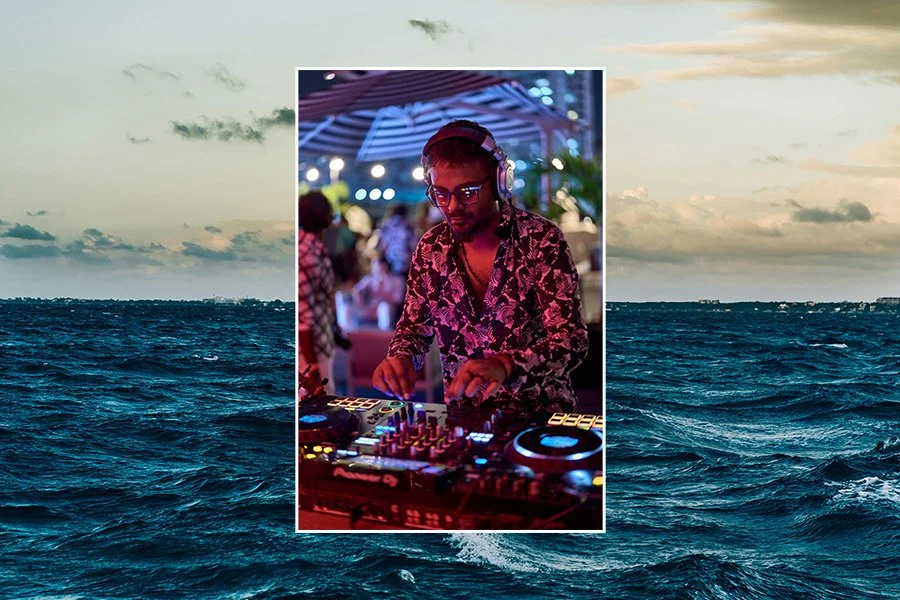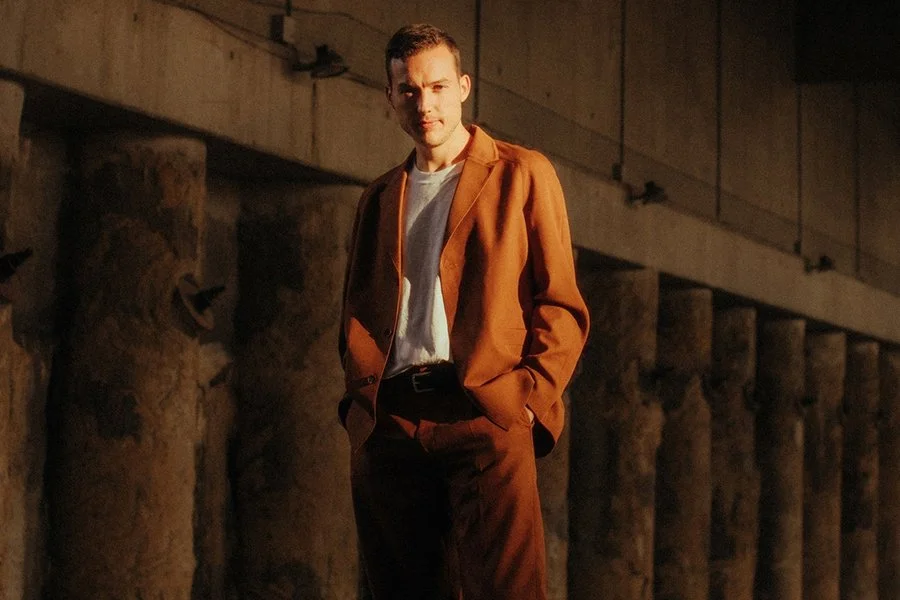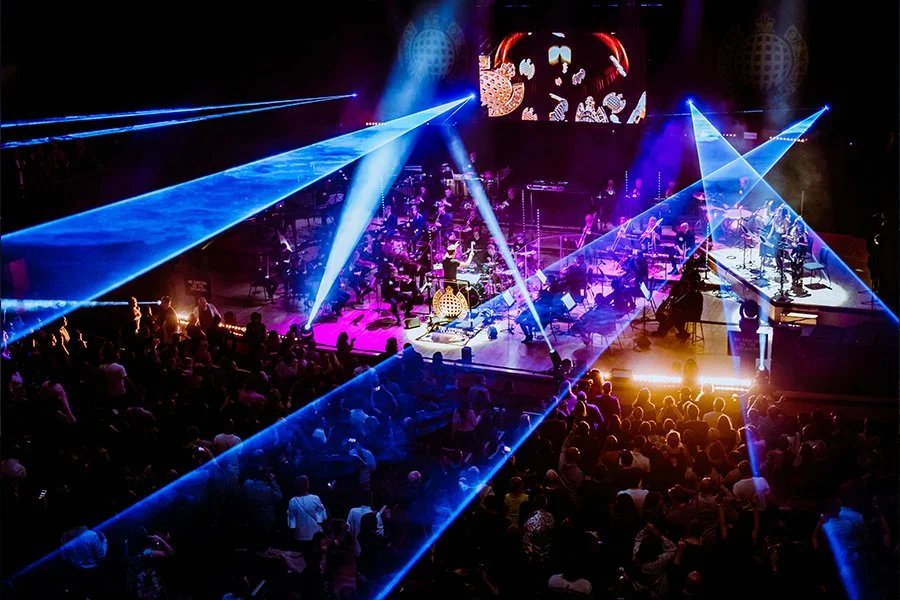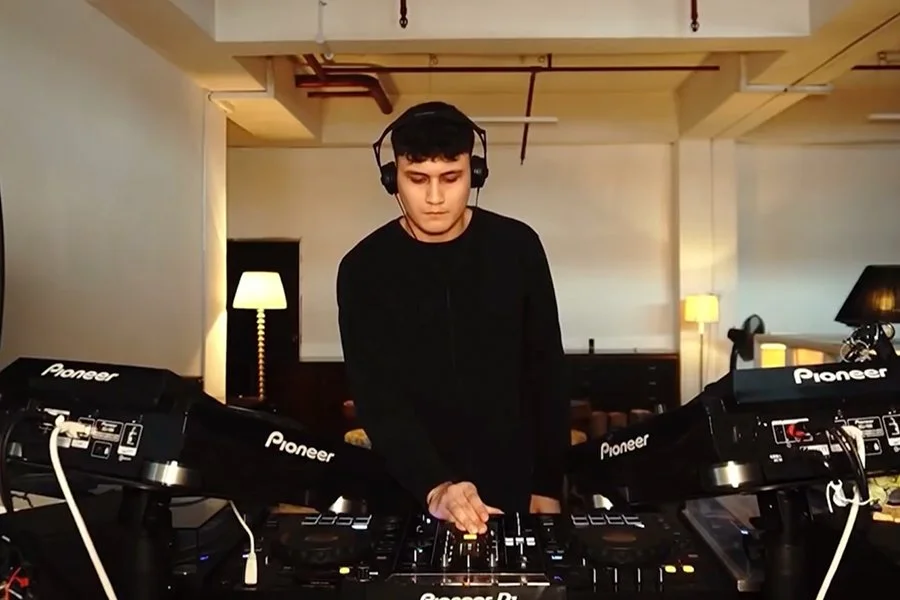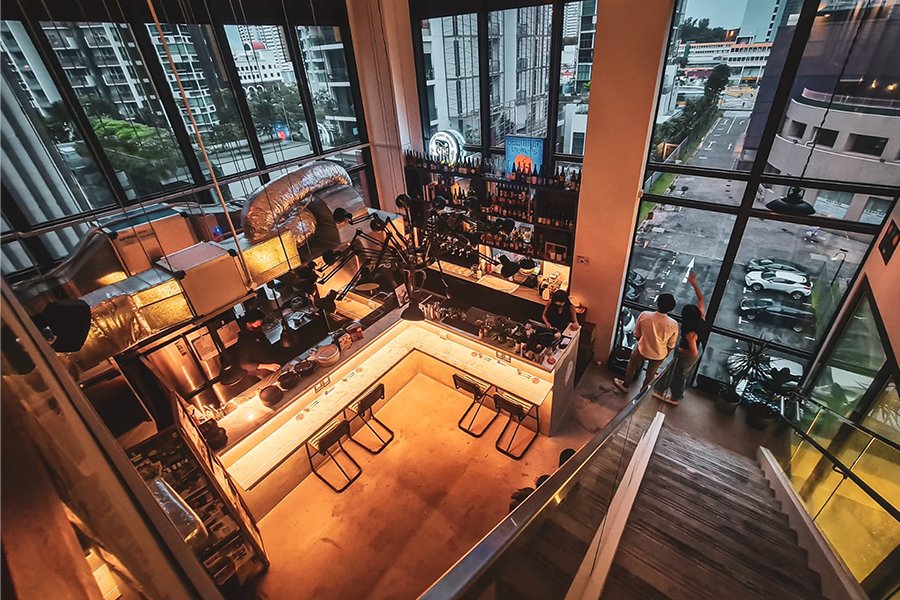Down To DAW: This Is Grid Culture, Singapore’s First Ableton Certified Training Centre
Meet Singapore’s first Ableton Certified Trainer and the visionary behind production school, Grid Culture (Credit: Courtesy of Syafiq Halid)
The exponential rise of technology has made the prospects of being a DIY musician easier than ever. Hardware no longer costs an arm and a leg, and digital audio workstations (DAW) like Ableton Live have become accessible staples in many producers’ routines. Yet would you believe that, despite the popular DAW’s launch in 2001, Singapore only got its first Ableton Certified Training Centre in 2019? Filling this void and embedding itself into the scene, Grid Culture is a music production school founded by Syafiq Halid, who also happens to be the country’s first Ableton Certified Trainer. With his expertise, the institution’s presence adds more legitimacy to a city that sees its electronic community growing day by day.
Grid Culture has all the tools you need to get you started on electronic music production (Credit: Grid Culture)
Sure, you can easily purchase your own software and study all the YouTube tutorials you can find online, but this tends to lack a streamlined lesson plan, a regimen tailored to one’s musical style, and more significantly, a personal touch. Grid Culture not just offers all of this, but helps shatter the perception that music production is an intimidating beast to tame. Syafiq quells the concerns with an assortment of dedicated programmes, together with a super-squad of trainers many in the scene would know – Kaye from Darker Than Wax, Intriguant from Syndicate, and Zie from Disco Hue and brb. Whether you wish to learn the basics of mixing, adapt your bedroom session to a live performance, or simply learn how an arpeggiator works, Syafiq and co. will show you the ropes.
Starting a school like this in Singapore, however, doesn’t come without its complications. Securing the right location, finding students to sign up, and determining suitable curricula were just some of the numerous obstacles Syafiq had to overcome before launching his dream project. As music production is still considered a niche hobby in a tiny city like ours, the school trudges on while gradually widening its reach. Since the pandemic hit, Syafiq even started online lessons for those seeking a new pastime in lockdown; a resourcefulness you’d expect from a guy obsessed with technology. Even with life’s new rhythm, Grid Culture is staying on beat.
To share more about his vision behind Grid Culture and his journey getting here, Syafiq elaborates fully in this interview.
Syafiq Halid has been involved in several projects as a musician over the years (Credit: Courtesy of Syafiq Halid)
Ableton has been around for some time now, but Grid Culture is Singapore’s first Ableton Certified Training Centre that launched in 2019. Did this create an urgency that led to your formation of Grid Culture?
Absolutely! I am surprised that it took off faster than expected. When I started Grid Culture officially in 2019 at a quaint studio in Mandai, my mission was to educate the masses on Ableton Live as a production and performance tool. So it is more of a slow and lean start-up for me, as I was doing it all by myself. In August 2020, I got a new space at The Music Parlour, a boutique-like concept space, founded by my business partner now, Jaye.
Grid Culture will make these gadgets look a little less intimidating (Credit: Grid Culture)
So how hard is it to become an Ableton Certified Trainer anyway?
Honestly yes, it was really hard, demanding and rigorous. The certification programme taught me a lifetime experience. I had anxieties, panic attacks and even didn’t have an appetite to eat as I always felt like throwing up. I still remember those sleepless nights vividly and was almost on the verge of giving up in the middle of the programme.
You must know that I am not able to share what’s happening during the certification programme due to NDA. If anyone wants to know more, there is a link on Ableton’s website that shares all the information on how to become a certified trainer. I would highly recommend everyone to give it a try if they have the passion for sharing their craft. Just be yourself and know your strengths. This process has taught me that everyone is uniquely different. After going through it, you will realise that overthinking kills everything that you’ve got!
Syafiq performing at the ArtScience Museum in 2019 (Credit: Courtesy of Syafiq Halid)
You have an impressive background with several projects in the scene over the years. How have they shaped you into the producer you are today?
I am fortunate for my journey as a sound designer and, over time, moulding into an electronic artist when I first started my first contemporary dance theatre project in 2015. I didn’t expect that the opportunity could open up many doors to me. The type of projects that I was involved in were mostly Malay traditional contemporary or experimental. I worked closely with both the director and the cast. Each project had its own direction, vision and story, so as a sound designer, I had to produce music, sound cues and sound effects for the shows. Most of the time, I would be triggering and playing back all the music and cues in real-time using Ableton Live.
“I want Grid Culture to be a school that offers a platform for anyone in the community.” (Credit: Grid Culture)
What were some difficulties you faced in setting up the school?
Personally, designing the right and suitable lesson curricula alongside Grid Culture’s mission was challenging. I have three new trainers, each of them with different strengths and experiences to share their inputs too. I want Grid Culture to be a school that offers a platform for anyone in the community who finds a strong need to express themselves by making music digitally.
To me, making music in Live is like playing a game because there are many creative techniques that I can explore in the software to produce infinite possibilities. Now, our mission is to reach out to these kinds of people in the community.
Do you think there’s been an increased interest in music production with the stay-home circumstances the pandemic has brought?
Without a doubt, yes! My biggest takeaway for me when the pandemic struck in March 2020, was being in fear that I couldn’t sustain it as I never had experience conducting online lessons. As the famous proverb goes, “every cloud has a silver lining”, I had more students enquiring and signing up for online lessons during the lockdown period. When I asked these students, they were the people who finally found time at home to discover new knowledge or reconnect with their passion for making music.
The courses available range from arranging to performing (Credit: Grid Culture)
Can you tell us more about the full suite of services that Grid Culture brings? Is it suited for anyone, and for any electronic genre?
Grid Culture offers a variety of courses that equip students with creative techniques such as Electronic Music Composition and Arrangement, Beat-making and Music Production with Ableton Live. Students can also delve into the software’s performance potential through the Performing Live course, or learn how to polish their sounds with the Mixing and Mastering course.
Honestly, most of my past students had zero knowledge and understanding of Ableton Live, but now they are aware that the software has so much more to offer. While designing the packages, I had this new idea to rent out a workstation to anyone looking for a space to produce music comfortably and in a conducive environment. Just like a co-working space, but now it’s co-studio sharing?
“I designed Grid Culture to become a music production school known for its unique project-centric teaching approach.” (Credit: Grid Culture)
I remember when I started the journey making music on a laptop, I did not have a conducive and inspiring environment at home. I was lacking basic studio equipment like a laptop, an audio interface, headphones and MIDI controllers. Hence, in Grid Culture you can rent a seat with a fully equipped workstation at an affordable hourly basis. We have five workstations for everyone or students to book. Each workstation has an iMac with Live Suite, a MIDI keyboard, headphones, a Push 2 and audio interface. We do have bigger programmes and ideas still planning in my head, but I’ll share when the time is right!
How would you describe your teaching style? Do you have certain methodologies you stick to?
I designed Grid Culture to become a music production school known for its unique project-centric teaching approach, which encourages students to take ownership of their learning. The team recognises that hectic lifestyles can make learning commitments challenging, hence the flexible lesson options of one-to-one tutoring, group classes and online lessons, depending on preference.
Diverging from traditional music teaching styles, Grid Culture’s experienced trainers teach through experimentation and exploration. Students are encouraged to use their personal music projects as part of the lesson material, as the team believes that it would provoke a more independent and inquisitive learning attitude. Lessons are also customised according to the students’ proficiency level, in order to provide a comfortable learning pace.
Syafiq won’t be the only one teaching you how to use Ableton Live at Grid Culture (Credit: Grid Culture)
Can you tell us more about your fellow trainers? What do you look for when choosing someone for the Grid Culture team?
I was quite nervous when I had the idea to expand Grid Culture with external trainers. I thought no one would apply or if I’d get the kind of trainers I was hoping for. I just did a simple post on Facebook and Instagram about this application. Surprisingly, I received around 15 applicants who were keen to join Grid Culture.
I’m happy that those who applied and sent their resumes to me are key electronic artistes and upcoming ones in Singapore. The bonus part is that they are also friends from the industry! With my current trainers that I’ve met and hand-picked, I firstly looked at their experience in the music industry, their individual unique strengths, and styles in representing their musicality. As for now, I am grateful to have Kaye, Intriguant and Zie; all of them have distinct differences and strengths to cover the void in Grid Culture.
I believe more trainers with such vast experience can boost more value in Grid Culture. You can learn good tips and tricks about music production or how to learn Ableton Live. However, nothing can beat circling around a like-minded community and real-time experiences from the trainers who can guide you in our local scene. That is a gem.
For the trainers, can you share your thoughts on joining an institution like Grid Culture? And what would you say you bring to the table for prospective students?
Intriguant will be teaching the essentials of production (Credit: Grid Culture)
Intriguant
It is humbling joining an institution like Grid Culture. I am always learning something new about Ableton Live from the other trainers. And being a trainer myself, I have the opportunity to guide the students through the process of learning Ableton Live and also share different ways of producing music and sounds.
Kaye will focus on how to perform live using Ableton Live (Credit: Grid Culture)
Kaye
People have said before that I have a knack for teaching, that I'm able to explain things to them in an easy-to-understand kinda way. I do get a lot of satisfaction when someone comes to me clueless about something, but by the time I'm done with them, they're on a completely different level. Having used Ableton Live for almost a decade, and being a live performer for more than two, I'm able to bring a ton of real-world experience to the table, whether it be using the software just to make music, or as part of your live performance rig to marry software and hardware together. Being an actual musician myself is definitely a bonus as well!
Zie conducts courses on composition and arrangement (Credit: Grid Culture)
Zie
I've spent a fair amount of time building myself as a producer, performer and arranger (Disco Hue, brb.) and also for other talented artistes like Jasmine Sokko, Sam Rui, and Charlene Su just to name a few! So with the experience I've gained over the years, I'd love to share them with other budding or younger producers (or even better, learn a thing or two from them!). This is an even greater opportunity for me as I'm not as experienced as the other trainers, Kaye and Intriguant, who are mad talented and skilled in their own craft. The meetings we've had so far were insightful and educational!
“Grid Culture is able to help you smoothen the learning curves. That’s what we do. So don’t overthink and just start!” (Credit: Grid Culture)
Electronic music production is sometimes perceived as an intimidating realm with a steep learning curve. Do you have any advice that debunks this concern?
I would agree with that. As long as you have an interest and passion in learning music production, I strongly believe that you can pick it up pretty well. I have interesting stories from my past students whom I have taught in the past few years and you can check out their testimonial videos on Grid Culture’s Youtube channel.
Another piece of advice that I would share is to invest in learning from someone's experience. It could be a music school or a teacher that guides you in this process. Do not be afraid of spending a little bit and you'll instantly feel the difference in the learning speed and progress. If you want to save up, of course, you can pick up a bit on YouTube, online courses and books. Shameless plug here: Grid Culture is able to help you smoothen the learning curves. That’s what we do. So don’t overthink and just start!
“I would like to see unorthodox electronic artistes breaking boundaries, deconstructing and finding new forms of traditional elements in Singapore.” (Credit: Grid Culture)
And what is your end goal for Grid Culture? What would you like it to achieve in our local music industry?
To encourage music-making through experimentation and exploration using Ableton Live and promote controllerism in live performance settings, as it is often overlooked by the general public in the live element. With and without music knowledge, there are many ways, techniques and approaches in sculpting your own music and style. Using a laptop and Live is an instrument in itself and you can start anytime, anywhere.
I would like to see unorthodox electronic artistes breaking boundaries, deconstructing and finding new forms of traditional elements in Singapore. We live in such a multi-ethnic culture that is rich with vocabulary of musical form that enables us to decipher in our own ways.
(Credit: Grid Culture)
Grid Culture, 140 Owen Road, Singapore 218940. Visit its official website to find out more about courses and how to make a booking.
